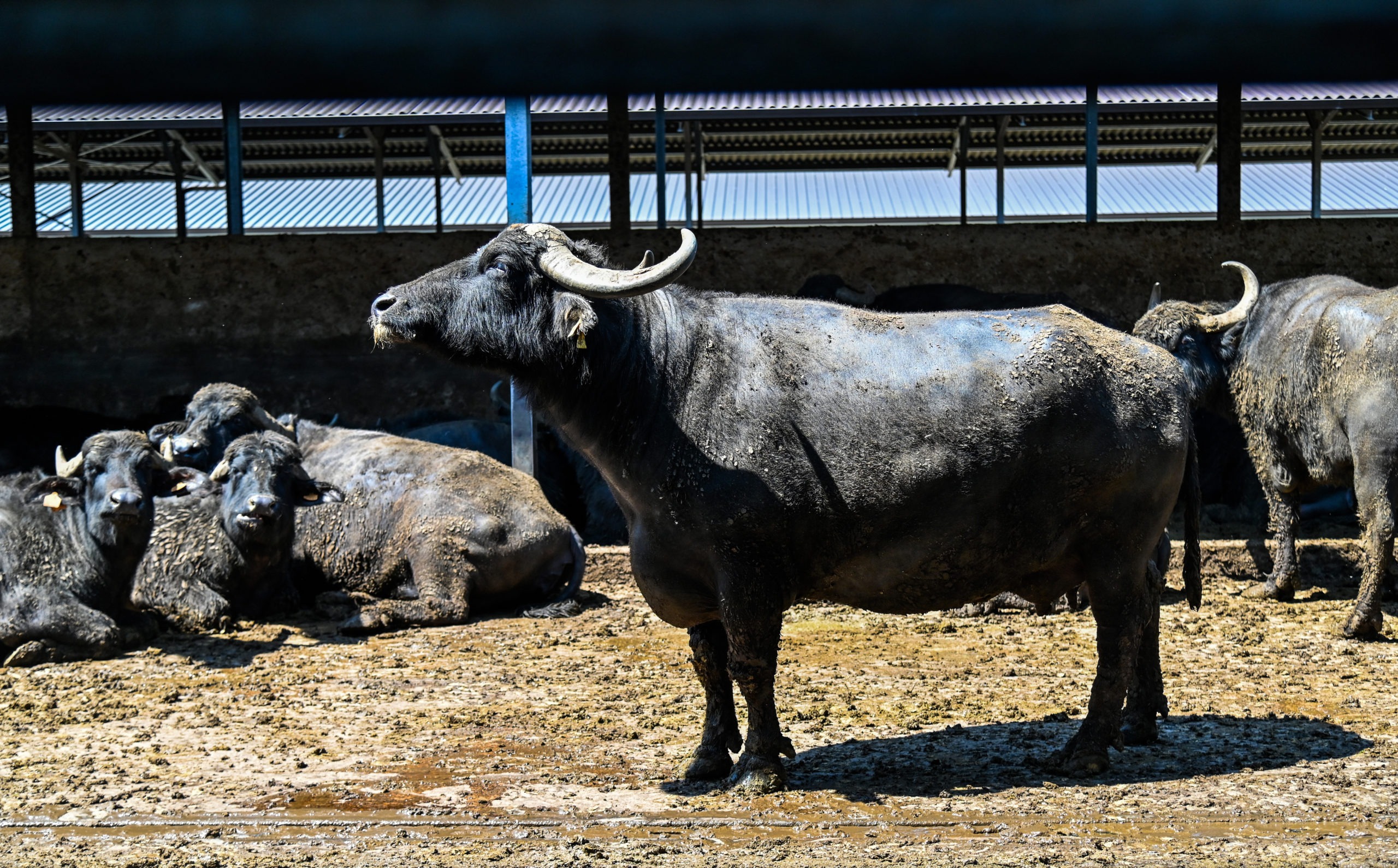Cheese bonds save Italian buffalo farmer
The milk of black buffaloes is used to make mozzarella cheese (ANDREAS SOLARO)
Salerno (Italy) (AFP) – His country’s battle with Brussels over “coronabonds” has given a despairing Italian caciocavallo cheese maker an idea: why not start issuing caciobonds?
Buffalo farm owner Giuseppe Morese calls it “creative cheese financing”.
People pay up and receive a note promising that their pear-shaped ball of cheese will arrive when it has aged enough to enjoy with some warm bread and wine.
“You pay immediately when you order and get the final product once it has matured,” Morese said at his cacio factory in the Naples area.
Dozens of black buffaloes with menacing white horns roam a fenced-off grazing ground and splash around in the mud as he speaks.
The beasts are primarily there to make mozzarella for the region’s numerous pizzerias.
But all the restaurants have been closed for many weeks because of the pandemic and the buffaloes need to be milked all the time.
Morese figured he could try to use all that buffalo milk to make a specialty caciocavallo — a cheese popular in southern Italy and usually made with the trusted help of cows.
“We are offering consumers — at least those who are nearest to us, most dedicated to our business, those who love Italian products the most — a chance to invest and provide immediate support,” Morese said.
– Big cheese –
The Italian economy froze over when the government — grappling with the worst virus outbreak in Europe — closed all shops and restaurants in the first half of March.
The government wanted the European Union to help salvage the situation by issuing what became known as coronabonds — a form of debt held jointly by the bloc’s nations.
Some northern European countries balked at the idea and the southerners — not just Italy but also hard-hit Spain and neighbouring France — felt slighted.
The issue galvanised Italians during a war-like crisis that has now officially claimed more than 27,000 lives and forced an estimated half the country’s companies to suspend operations.
How many will be able to survive the pandemic and go back into business is an open question in both Italy and across other long-shuttered stretches of Europe.
The size of Morese’s cheese suggests that he is bracing for the worst.
“The reason why we are making this one so big is that we want to have it mature for a long time,” he says of a ball bigger than his head.
“We hope to taste it when COVID-19 is but a bad dream and the tempest is over.”
– ‘Excess into excellence’ –
The main problem facing Italian businesses that have managed to stay open is figuring where to offload their goods.
All of Italy’s cafe and cantinas closed on March 12 and will not reopen until the last lockdown measures are lifted on June 1.
“The pandemic created an economic shock. It created an excess of products in comparison to their demand,” local Coldiretti farming organisation chief Vincenzo Tropiano said.
“The caciobonds help restore the equilibrium,” Tropiano said.
Coldiretti is helping Morese issue the bonds and make sure that everyone receives the cheese they are owed.
Morese said one couple paid 45 euros ($49) for a two-year bond that they intend to turn into seven kilos (15.5 pounds) of cheese for their wedding party.
“We were lucky enough to receive some orders and money transfers,” said the cheese maker.
“Our slogan is that we turn excess into excellence.”
Disclaimer: Validity of the above story is for 7 Days from original date of publishing. Source: AFP.


